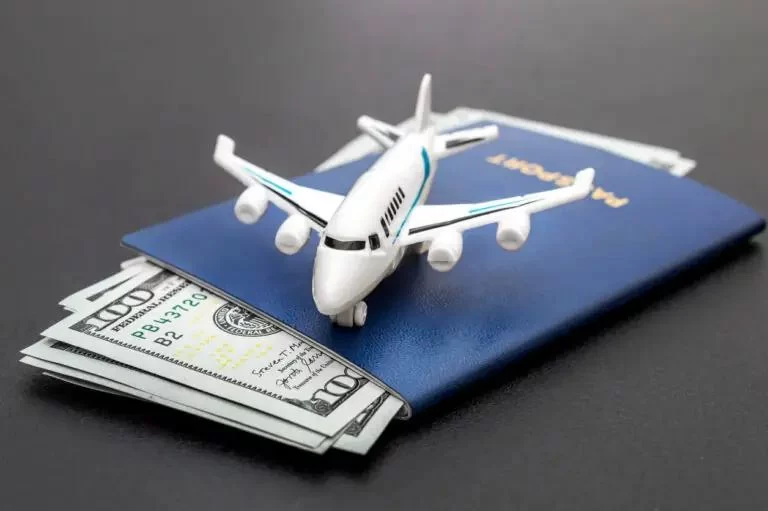
- Understanding Creditors Rights in Airline Bankruptcies
- Legal Framework and Protections for Creditors
- Common Challenges Creditors Face in Airline Bankruptcy Cases
- Real-World Examples of Creditor Rights in Airline Bankruptcies
- How ESPLawyers Can Assist Creditors in Airline Bankruptcies
1. Understanding Creditors Rights in Airline Bankruptcies
When an airline faces bankruptcy, creditors suddenly find themselves navigating a complex and often uncertain legal landscape. Creditor's rights in airline bankruptcies refer to the legal protections and claims that creditors can assert to recover debts owed to them. This process is far from straightforward due to the unique nature of airline operations and the regulations governing aviation insolvencies.
Creditors in this context can range from suppliers and leasing companies to bondholders and employees. Each type of creditor has different priority levels under bankruptcy laws, influencing how much of their owed money they might recover. Understanding these rights is crucial for creditors to strategize effectively during airline insolvency proceedings.
Importantly, the airline bankruptcy process can delay repayments significantly and involve negotiations under court supervision, making the protection of creditor rights a delicate balancing act.
1.1 The Nature of Airline Bankruptcies
Airlines are capital-intensive and highly regulated businesses, so their bankruptcies often involve intricate financial and operational restructuring. Creditors must be aware that unlike many other industries, airline bankruptcy cases can include asset sales, restructuring agreements, or even government intervention, all impacting creditor claims.
1.2 Categories of Creditors
Creditors are generally classified as secured or unsecured, with secured creditors holding liens or collateral against the airline’s assets. For example, aircraft lessors often have secured claims, while suppliers or service providers may have unsecured claims, usually receiving lower priority during repayment.
2. Legal Framework and Protections for Creditors
Various laws and regulations govern creditor's rights in airline bankruptcies. In the United States, Chapter 11 bankruptcy provides a framework that allows airlines to reorganize while continuing operations. During this time, creditors have the opportunity to submit claims and participate in the reorganization plan.
Globally, international treaties and aviation-specific insolvency rules may also influence creditor rights, especially for airlines operating across multiple jurisdictions. Understanding these legal protections helps creditors safeguard their interests effectively.
2.1 Priority of Claims
Bankruptcy law typically establishes a hierarchy for creditor repayments. Secured creditors are paid first, often from the proceeds of collateralized assets. Following them are priority unsecured creditors, such as employees owed wages, and finally general unsecured creditors who may only recover a fraction of their claims.
2.2 Automatic Stay and Its Implications
Once bankruptcy is filed, an automatic stay prevents creditors from taking collection actions independently, centralizing control with the bankruptcy court. This legal protection allows orderly management of the airline’s assets but can delay creditors’ ability to recoup debts.
3. Common Challenges Creditors Face in Airline Bankruptcy Cases
Creditors in airline bankruptcies often encounter significant obstacles that can complicate their recovery efforts. The delay caused by prolonged legal proceedings and the airline's operational restructuring can frustrate creditors expecting timely repayments.
3.1 Valuation of Airline Assets
Determining the value of airline assets—such as aircraft, routes, and brand reputation—is complex. Disputes over valuation can delay settlements and reduce recoveries, especially for unsecured creditors who rely on leftover assets after secured creditors are paid.
3.2 Cross-Border Insolvency Issues
For airlines with international operations, creditor claims may be subject to multiple legal jurisdictions, complicating the enforcement of claims and coordination among creditors.
3.3 Negotiating Reorganization Plans
Creditors may have to negotiate compromises within reorganization plans, accepting partial repayments or equity stakes in the reorganized airline. These negotiations require careful legal advice to protect creditor interests without risking total loss.
4. Real-World Examples of Creditor Rights in Airline Bankruptcies
One of the most illustrative examples is the bankruptcy of American Airlines’ parent company, AMR Corporation, in 2011. During this case, creditors faced a lengthy restructuring process. Secured creditors such as aircraft lessors negotiated terms that allowed partial asset repossession, while unsecured creditors, including suppliers and bondholders, had to accept reduced claims under the court-approved reorganization plan.
Similarly, the recent bankruptcy of Avianca Airlines revealed how creditors from multiple countries coordinated claims under international insolvency frameworks. The case highlighted the importance of professional legal representation to navigate cross-border creditor rights effectively.
Stories like these underline the complexity and importance of understanding creditor's rights in airline bankruptcies.
4.1 Lessons from Past Cases
These cases emphasize that proactive engagement, thorough documentation of claims, and expert legal counsel are vital for creditors to maximize recoveries in airline bankruptcies.
5. How ESPLawyers Can Assist Creditors in Airline Bankruptcies
At ESPLawyers, we specialize in helping creditors understand and assert their rights during airline bankruptcies. Our experienced legal team provides tailored strategies for claim preparation, negotiation, and litigation when necessary.
We assist creditors in evaluating their position—whether secured or unsecured—and guide them through complex bankruptcy proceedings to protect their interests. ESPLawyers also offers insights into international insolvency laws for creditors involved with global airline operations.
For anyone facing challenges related to creditor claims in airline bankruptcies, consulting ESPLawyers ensures you receive professional advice rooted in real-world experience and legal expertise.
Protect your financial interests with informed, strategic support tailored to the airline industry's unique bankruptcy environment.








